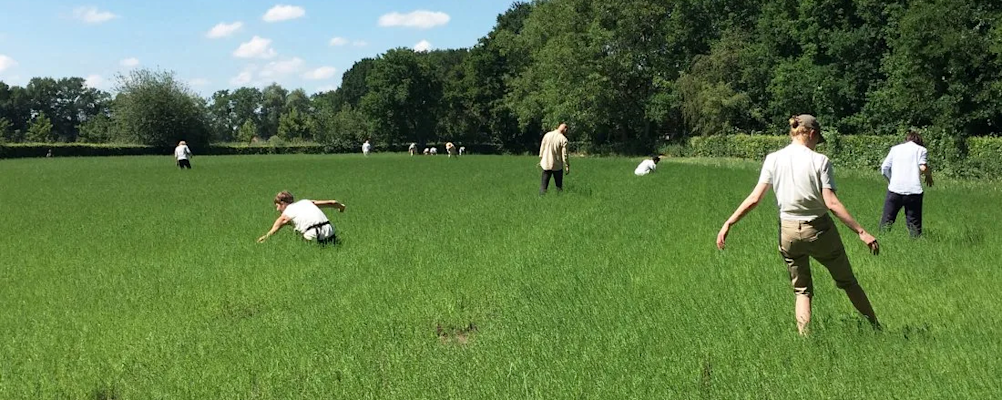From the program Innovation Labs
WHAT WE CAN LEARN FROM NON-HUMAN PARTNERS
Collaboration is an important theme within the Innovation Labs program. It was a prerequisite for participating in the two Open Calls, and it is an important prerequisite for innovation in general. Two know more one - we know that. But what do we know about collaborations with non-human partners? Veerle Spronck and Walter van Andel, both affiliated with HKU and the Innovation Labs program, take a closer look at unconventional collaborations and explain how they serve as sources for innovation.
Can you collaborate with a robot, a river or flax? Yes, is the answer if you go by Center Stage Robotics, Maas Lab and The Linen Project from the second batch of participants in the Innovation Labs program. But what exactly does it mean to collaborate with non-human entities or objects, and not just consider them as passive “resources”? And why is this approach to collaboration a source of innovation? To answer these questions, we must first understand what we mean by good collaboration and how our economic thinking affects it.
New economy, new values central
In recent decades, prevailing economic thinking has been characterized by a focus on deregulation, privatization, free-market capitalism and a focus on individualism. The guiding principle here is primarily the maximization of profit, from the viewpoint that this can best drive economic growth. However, the harmful side effects of this (neoliberal) ideology have also been known for a long time. Maximizing profit often leads to exploitation of both natural resources and also vulnerable groups. Short-term profits are prioritized over long-term sustainability, resulting in, among other things, a planet facing climate change, deforestation and loss of biodiversity. The consequences of these actions are being felt worldwide and particularly affect vulnerable communities and ecosystems.
In recent years, there has been a growing counter-movement actively opposing this system. There are economic thinkers who conceptualize other economic systems. A well-known example is the Donut Economy model introduced by Kate Raworth (2017). A model that prescribes that a healthy, regenerative economy must have enough economic growth to provide a minimal social foundation, but where that economic growth must also remain limited enough to avoid going through the “ecological ceiling” that degrades the planet. In addition, there are several economists and sociologists who subscribe to global movements such as the economy for the common good and the wellbeing economy ...
Innovation Labs is a program that focuses on innovative projects that contribute to a strong creative and cultural sector. The program is an initiative of CLICKNL, Stimuleringsfonds Creatieve Industrie (lead agency), Ministry of OCW, Rijkscultuurfondsen and Regieorgaan SIA.
Credits main image: The Linen Project


